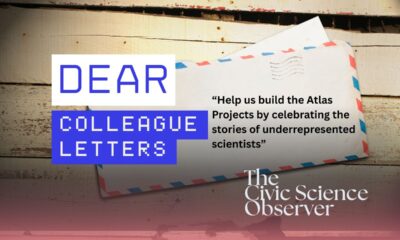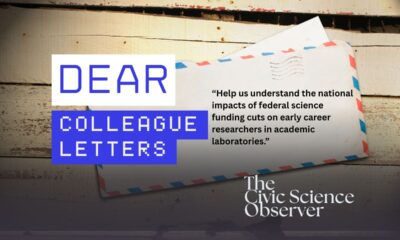Civic Science Observer
Make science a priority in Haiti
by Gandhy Pierre-Louis, PhD
This year marks the six-year anniversary of the earthquake that devastated the island nation of Haiti. The international community pledged financial support to aid in rebuilding and to orient the country towards the goal of reclaiming the title of “Pearl of the Antilles”. However, half a decade later, the debate on how to spend the remaining funds is still ongoing. As suggested by the 2011 AAAS report (1) on Haiti, investment in science education, research, and technological innovation is necessary to bring about prosperity in Haiti. Evidence of this can be seen across several countries including Singapore, India and Brazil which until relatively recently, were in comparable economic straits. Currently, the island faces daunting threats from disease-causing microbes including cholera and chikungunya. The presence of scientists and adequate laboratories on the ground would greatly expedite diagnoses, research treatments and provide the country the means to react to future epidemics.
To achieve this goal, Haiti needs to focus on building a strong science education system, which transcends didactic instructions and provides practical technical skills. Collaborations between Haitian scientists and foreign researchers are key to reaching this goal and could function synergistically. The Haiti Bioscience Initiative – a collaborative effort between science professionals in the US and Haiti – is already poised to make significant contributions on that front. More of such ventures are needed to train Haiti’s scientists in the appropriate technical skills, which can simultaneously lead to the support of ongoing research. With a sustained effort to increase the scientific capacity, Haiti could be transformed from an impoverished country into a self-sufficient nation that is a hub of science and innovation in the Caribbean.
References:
(1) 1. Machlis, G., Colon, J., McKendry J. Science for Haiti: A report on advancing Haitian science and science education capacity. AAAS (2001).
The CS Media Lab is a Boston-anchored civic science news collective with local, national and global coverage on TV, digital print, and radio through CivicSciTV, CivicSciTimes, and CivicSciRadio. Programs include Questions of the Day, Changemakers, QuickTake, Consider This Next, Stories in Science, Sai Resident Collective and more.

-
 Audio Studio1 month ago
Audio Studio1 month ago“Reading it opened up a whole new world.” Kim Steele on building her company ‘Documentaries Don’t Work’
-
Civic Science Observer1 week ago
‘Science policy’ Google searches spiked in 2025. What does that mean?
-
Civic Science Observer1 month ago
Our developing civic science photojournalism experiment: Photos from 2025
-
Civic Science Observer1 month ago
Together again: Day 1 of the 2025 ASTC conference in black and white
Contact
Menu
Designed with WordPress
























